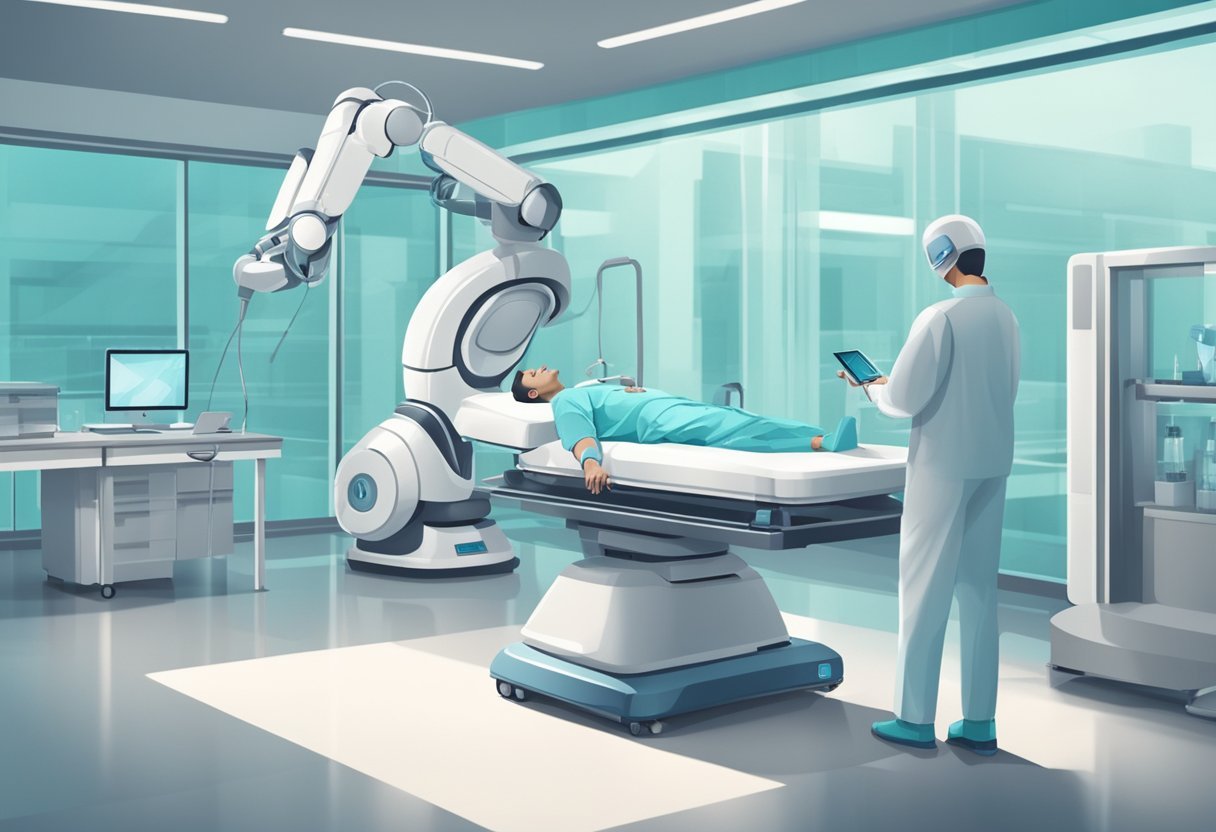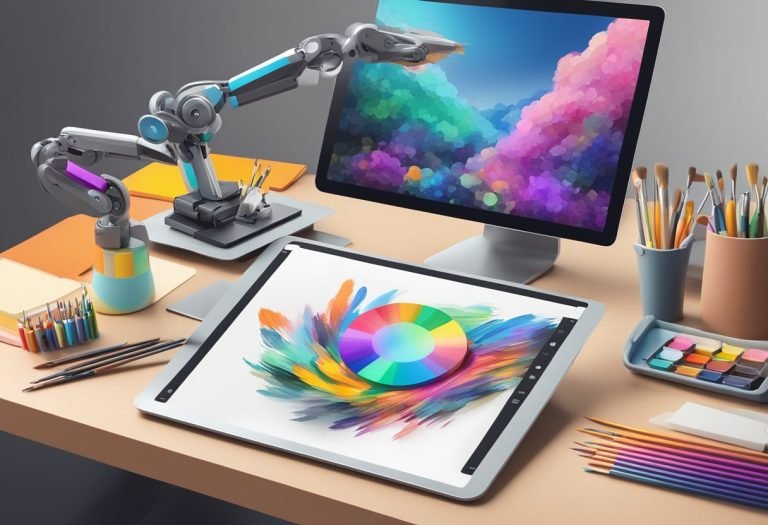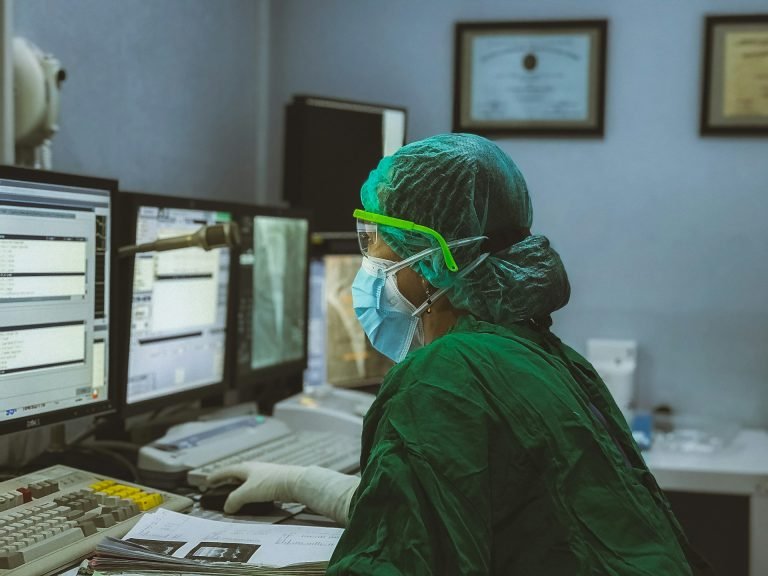Will AI Replace Doctors: Examining Future Healthcare Dynamics
Artificial intelligence (AI) is transforming numerous industries, and healthcare is no exception. As AI technologies advance, questions about their potential to replace human doctors have become increasingly relevant. AI will not replace doctors entirely, but it will become an essential tool that enhances their capabilities and efficiency. Understanding the dynamic between AI and the medical profession is critical as healthcare continues to evolve.

AI offers notable advancements in diagnosing and treating various conditions. Innovations like AI-assisted radiology can improve diagnostic accuracy by serving as a second opinion for medical professionals. This transformation in medical practice suggests that AI will continue to grow in its role, supporting doctors rather than replacing them outright. The collaboration between AI and doctors promises improvements in patient outcomes and healthcare efficiency.
Ethical considerations and practical challenges remain in integrating AI into healthcare. Concerns about data privacy, algorithmic biases, and the decision-making role of AI in patient care must be addressed. As AI becomes more prominent in medicine, these challenges will need careful attention to ensure that its integration benefits both healthcare providers and patients.
Key Takeaways
- AI will enhance, not replace, doctors.
- AI improves diagnostic accuracy and efficiency.
- Ethical challenges in AI integration persist.
The Role of AI in Healthcare

Artificial intelligence is increasingly influencing healthcare by enhancing medical diagnostics, streamlining routine processes, and accelerating research. AI’s role is expanding from basic data management to complex clinical decision-making, offering both opportunities and challenges.
Current AI Applications in Medicine
AI is actively assisting in various medical fields. Automated systems now play a crucial role in managing patient records and scheduling, reducing administrative burdens. Virtual health assistants and chatbots are increasingly employed for patient engagement and support, handling inquiries and appointment bookings efficiently. Medical imaging benefits significantly from AI, with algorithms capable of rapidly analyzing X-rays, MRIs, and CT scans, allowing for earlier detection of anomalies and diseases.
Wearable devices and mobile apps integrate AI to monitor vital signs continuously, providing real-time data for both patients and healthcare providers. This technology supports personalized care plans and early intervention. AI also aids in surgeries through robotic systems, offering precision that surpasses human capabilities. These applications illustrate AI’s ability to enhance efficiency and accuracy in healthcare settings.
AI Impact on Medical Diagnostics
AI’s impact is especially notable in diagnostics, where it enhances accuracy and reduces human error. Machine learning algorithms analyze vast datasets to identify patterns that can predict diseases earlier than traditional methods. This is particularly evident in radiology and pathology, where AI tools assist in reading complex images and suggesting potential diagnoses.
For instance, AI systems can detect early signs of cancer in mammograms or identify diabetic retinopathy in eye scans. This capability shortens the diagnostic process and facilitates prompt treatment, potentially improving patient outcomes. Such applications highlight AI’s potential to supplement the clinical expertise of healthcare professionals, although ongoing oversight is necessary to ensure reliability and ethical use.
AI-Enhanced Medical Research
In medical research, AI accelerates the discovery of new drugs and treatments. By analyzing large datasets, AI can identify promising compounds and predict their interactions, expediting the drug development process and reducing costs. Natural language processing tools assist researchers by analyzing scientific literature to uncover insights and patterns.
AI-powered simulations model complex biological systems, enabling researchers to explore scenarios and hypotheses without the need for costly physical trials. These capabilities have already led to developments in personalized medicine, offering tailored treatment options based on individual genetic profiles. This integration of AI into research signifies a shift towards more precise and efficient methodologies in advancing healthcare.
AI Versus Human Doctors

AI technologies in healthcare integrate seamlessly with human expertise to enhance patient care. This section will explore how AI and doctors complement each other, AI’s current limitations, and the value of emotional intelligence in medical contexts.
Complementary Roles of AI and Physicians
Artificial intelligence acts primarily as an extension of medical professionals. It processes large datasets swiftly and accurately, helping to identify patterns that might be missed otherwise. For instance, AI can assist in diagnostic processes by suggesting potential conditions and suitable treatments based on specific patient data. This technology supports doctors by improving their diagnostic accuracy and efficiency.
AI’s algorithm-based insights free up physicians to focus on patient interaction and decision-making that require human judgment. In certain scenarios, AI drafts medical notes or suggests tests, simplifying some of the routine procedural work in healthcare. As doctors incorporate AI, it becomes a valuable partner in clinical settings rather than a replacement.
Machine Limitations in Clinical Practice
Despite AI’s capabilities, machines have limitations in clinical practice. AI systems rely heavily on the quality and volume of data input, meaning that incomplete or biased data can result in inaccuracies. AI requires continuous human oversight to avoid errors, as mandated by regulatory bodies like the FDA. This underscores their role as tools rather than standalone entities.
Trust is another hurdle; patients may hesitate to rely on machines for their health needs. AI lacks the nuanced understanding of complex medical scenarios that experienced medical professionals have. Tasks such as patient communication and judgment in uncertain situations remain firmly within the human domain.
Emotional Intelligence in Healthcare
Emotional intelligence remains a cornerstone of effective medical care. The ability to empathize and communicate compassionately with patients is a quality AI cannot replicate. Doctors deliver empathetic support, understanding patient emotions and responding appropriately during difficult times.
Healthcare involves more than just diagnosis and treatment—it’s about building relationships and trust with patients. Human doctors offer reassurance and comfort, which play a crucial role in the healing process. While AI can augment these interactions by providing accurate medical information, it cannot replace the personal touch that comes from human empathy and understanding. AI and human doctors, working together, create a balanced approach that values both technology and humanity.
Technological Advances in AI

Recent advancements in artificial intelligence show significant potential in healthcare. These technologies improve diagnostic accuracy, facilitate efficient patient communication, and enhance predictive modeling to anticipate health outcomes.
Deep Learning
Deep learning is revolutionizing medical diagnostics. Using large datasets, algorithms can identify patterns in complex data. These advancements allow AI systems to detect abnormalities in medical imaging such as X-rays, MRIs, and CT scans with high accuracy. For example, AI can identify early signs of diseases like cancer, often with greater precision than human radiologists. As a result, healthcare professionals can make informed decisions quickly, improving patient care and reducing the likelihood of errors.
Natural Language Processing
Natural language processing (NLP) is crucial for enhancing patient interactions and managing clinical documentation. AI systems equipped with NLP can transcribe and comprehend conversations between doctors and patients. This ability enables real-time assistance in documenting medical notes and ensuring accurate record-keeping. With NLP, AI systems can also provide insightful suggestions on treatment options based on patient history and symptoms. By facilitating efficient communication, NLP helps doctors focus more on patient care instead of administrative tasks.
Predictive Analytics
Predictive analytics in AI is transforming how healthcare providers anticipate patient needs and predict health outcomes. By analyzing vast amounts of data from various sources, AI can identify trends and predict potential health risks. This predictive capability assists in developing personalized treatment plans and early interventions for chronic diseases. In the realm of preventive medicine, predictive analytics aids in identifying individuals at risk, enabling healthcare systems to devise targeted strategies for early prevention and improved patient outcomes. The integration of these predictive tools into healthcare practices represents a significant step towards more proactive care.
Ethical Considerations
The integration of AI in healthcare introduces several ethical considerations, focusing primarily on patient privacy and data security, bias and fairness in AI systems, and the need for transparency in AI decision-making. These elements are crucial for trustworthy AI use in the medical field.
Patient Privacy and Data Security
AI technologies in healthcare rely extensively on large volumes of data, raising significant concerns about patient privacy and data security. Protecting sensitive information from breaches is vital, as unauthorized access could lead to misuse of personal data. Regulations such as the GDPR in Europe and HIPAA in the United States outline stringent requirements for data protection.
Healthcare providers must ensure robust encryption methods and secure data storage systems to prevent unauthorized access. Patients should be informed about how their data is used by AI systems, fostering transparency and trust. Educating medical personnel about data handling practices is also key to minimizing risks associated with data breaches.
Bias and Fairness in AI Systems
Bias in AI systems can lead to unfair treatment in healthcare settings, often due to training on incomplete or unrepresentative data. This can result in disparities in care, often disadvantaging minority groups. Algorithms might inadvertently reflect historical biases present in the healthcare system, perpetuating inequities.
Ensuring fairness requires diverse datasets and ongoing model evaluation. Developers should actively seek to understand and mitigate bias from the initial stages of AI design. Collaborating with experts in sociology and ethics can also help identify potential areas of bias and develop strategies to address them effectively.
AI Decision-Making Transparency
Transparency in AI decision-making is essential for maintaining trust between doctors, patients, and AI tools. When AI systems suggest diagnoses or treatment options, healthcare providers need clarity on how those conclusions are reached. This understanding allows them to make informed decisions about patient care, balancing AI recommendations with clinical expertise.
A lack of transparency can lead to skepticism and resistance to AI adoption among healthcare professionals. Providing clear explanations and visualizations of AI processes can help bridge this gap. Additionally, developers should create systems with user-friendly interfaces, allowing for easy interpretation by non-technical users in medical settings.
The Future of AI in Medicine
Artificial intelligence is poised to significantly impact the medical field. Key developments include AI-driven diagnostics and personalized treatment plans, while its influence on medical employment raises questions about the future role of healthcare professionals.
Potential Developments in AI Healthcare
AI technologies are rapidly advancing in diagnostics. Machines are being trained to interpret medical images, such as X-rays and MRIs, with accuracy comparable to human doctors. Moreover, AI algorithms can analyze patient data to identify patterns that help doctors make informed decisions on treatment plans. AI can also simulate drug interactions and predict potential side effects, assisting in crafting individualized medication regimes.
Robotic surgery is another promising area. AI-controlled robotics can perform precise surgical procedures, reducing the risk of human error and potentially shortening recovery times for patients. Furthermore, virtual health assistants powered by AI can manage patient appointments and monitor symptoms, enhancing patient engagement and adherence to treatment regimens.
Long-Term Implications for Medical Employment
The integration of AI in healthcare raises important questions about job security for medical professionals. While AI is unlikely to fully replace doctors, it will change their roles. Physicians may spend less time on routine diagnostic tasks and more time on complex patient care and decision-making, potentially improving care quality.
Healthcare professionals may need to adapt by acquiring new skills in data analysis and AI technology management. This shift could lead to a demand for positions specializing in AI system oversight and integration within healthcare facilities. Additionally, continuous learning and adaptation will become essential for medical staff as AI continues to evolve and integrate into practice.
Adopting AI in Clinical Settings
Implementing artificial intelligence in medical environments enhances diagnostic accuracy and improves operational efficiency. By developing healthcare professionals’ competence in AI and seamlessly integrating AI tools with existing systems, healthcare can see transformative improvements.
Healthcare Professionals’ AI Competence
The success of AI in clinical settings relies significantly on healthcare professionals’ ability to effectively use these technologies. Training programs must be comprehensive, focusing on both AI understanding and its practical applications. Workshops and continuous education initiatives are essential to keep staff updated on evolving AI capabilities.
Providing access to case studies and simulations allows professionals to gain hands-on experience. This hands-on approach aids in mastering AI tools, reducing user error, and building confidence. A crucial aspect is fostering interdisciplinary collaboration; involving both IT experts and medical staff to bridge gaps in knowledge and technology use. Thus, it’s necessary to create an ongoing learning environment to maximize AI’s potential in healthcare.
Integrating AI with Existing Medical Systems
Integrating AI with existing medical systems demands a strategic approach. The process starts with evaluating current technology infrastructures to identify potential upgrades or adjustments needed. Ensuring compatibility between AI tools and electronic health records enhances efficiency.
A phased approach can facilitate smoother transitions. Initially, AI can assist with routine tasks like data entry and analysis. Over time, implementing more complex applications such as predictive diagnostics can occur. Collaboration with technology vendors and IT departments is crucial to address challenges like data privacy and security. Employing best practices in these areas guarantees that AI integration not only preserves but enhances overall patient care.
Policy and Regulation
Policy and regulation play crucial roles in ensuring the ethical and effective integration of AI in healthcare. Governments and international bodies are actively shaping oversight mechanisms and standards for AI technologies to protect patient safety and privacy.
Government Oversight of Medical AI
Government oversight is essential for integrating AI in healthcare. In the United States, regulatory bodies like the FDA assess the safety and effectiveness of AI tools. They ensure these technologies meet stringent healthcare criteria before entering the market.
State-level actions have been notable in places like California and Utah, where regulations directly focus on AI use in healthcare. Colorado, through the Colorado AI Act, regulates high-risk AI systems. These efforts highlight that oversight is tailored to address local risk profiles and operational settings, ensuring technology remains a beneficial tool rather than a liability.
Global Standards for AI in Healthcare
Globally, efforts are underway to establish standardized practices for AI in healthcare. The World Health Organization recommends guidelines that emphasize patient safety and ethical practices.
The international community is also working toward harmonizing AI regulations to promote consistency and trust. The focus is on developing protocols that prevent bias, ensure transparency, and maintain patient confidentiality.
Additionally, international collaborations seek to create shared frameworks. This encourages innovation while maintaining strict standards. The harmonization efforts aim to facilitate the safe adoption of AI across different healthcare environments. This alignment helps ensure that AI technologies serve to complement healthcare professionals effectively.
Case Studies and Real-World Examples
AI’s role in healthcare is growing, with several case studies highlighting its impact. At Moorfields Eye Hospital, AI was implemented to assist in detecting eye diseases. This case emphasizes how AI can complement medical expertise by analyzing retinal scans more efficiently.
Cancer diagnosis benefits significantly from AI adoption. Risk assessment models are helping to identify patients at higher risk, leading to earlier interventions. As noted, breast cancer impacts over 250,000 U.S. women annually, and these tools aim to reduce this health burden.
AI-assisted robotic surgery represents another transformative use case. This technology can analyze data from pre-operative records to guide surgical instruments during operations, potentially enhancing precision and reducing recovery times. Its estimated value to healthcare is around $40 billion.
AI in sleep study and therapy is improving the diagnosis and management of sleep disorders. Wearable devices use AI to monitor sleep patterns, providing insights that assist in crafting personalized treatment plans, as seen in recent case studies.
These examples demonstrate the potential of AI to augment medical practice, improving outcomes and efficiency. By integrating AI solutions, healthcare systems aim to support doctors rather than replace them, leveraging technology for better patient care.
Challenges and Limitations
Artificial intelligence in healthcare is transforming the medical field, but it comes with challenges. Technical issues in AI development and limitations in current applications highlight hurdles faced by AI as it aims to integrate more fully into healthcare systems.
Technical Challenges in AI Development
AI technology in healthcare faces technical challenges that can impede its effectiveness. One primary concern is the need for vast amounts of high-quality data to train algorithms. This data must be not only voluminous but also well-structured and representative of diverse populations to avoid bias and inaccuracies.
Additionally, ensuring privacy and security of patient data is critical. AI systems must comply with healthcare regulations like HIPAA, requiring advanced encryption methods and secure data handling practices. The complexity of AI algorithms also presents a challenge, as they often operate as a “black box,” making it difficult for medical professionals to understand and trust their decision-making processes.
Limitations in Current AI Implementation
Despite its potential, current AI implementation in healthcare is limited by various factors. AI tools are primarily designed to operate alongside human professionals rather than replace them. This partnership requires significant adjustments in workflow and can introduce new responsibilities for healthcare providers, such as interpreting AI recommendations.
Moreover, the emotional and personal aspects of patient care are not easily replicated by machines. AI lacks the ability to provide empathy and human contact, which remain crucial in the doctor-patient relationship. The reliability of AI in unpredictable real-world scenarios remains a concern, as algorithms might not always adapt well to atypical cases or new developments in medical science.
Conclusion
Artificial intelligence is transforming healthcare by enhancing the capabilities of medical professionals. While AI offers tools for automating routine tasks and providing diagnostic support, it is not designed to replace doctors. Instead, AI serves as an adjunct to medical expertise, fostering a symbiotic relationship between technology and human skill.
AI systems, such as digital scribes and conversation summarization tools, have already begun improving efficiency in clinical practices. By taking over repetitive tasks, AI allows healthcare professionals to focus more on patient care. This synergy enhances the overall healthcare experience.
AI also brings potential for decision support in patient care. These systems can highlight possible diagnoses and recommend additional tests or treatments, aiding doctors in making more informed decisions.
Despite concerns about job displacement, many healthcare roles are expected to persist. Some jobs prove that the threat of AI replacing doctors is lowered further. Healthcare professionals remain crucial in contexts requiring empathy, complex decision making, and personalized patient interaction.
In ensuring responsible integration, ethical considerations must be addressed. Data privacy, transparency, and accountability are crucial as AI continues to evolve. This balance will ensure that AI remains a beneficial tool for both professionals and patients.







